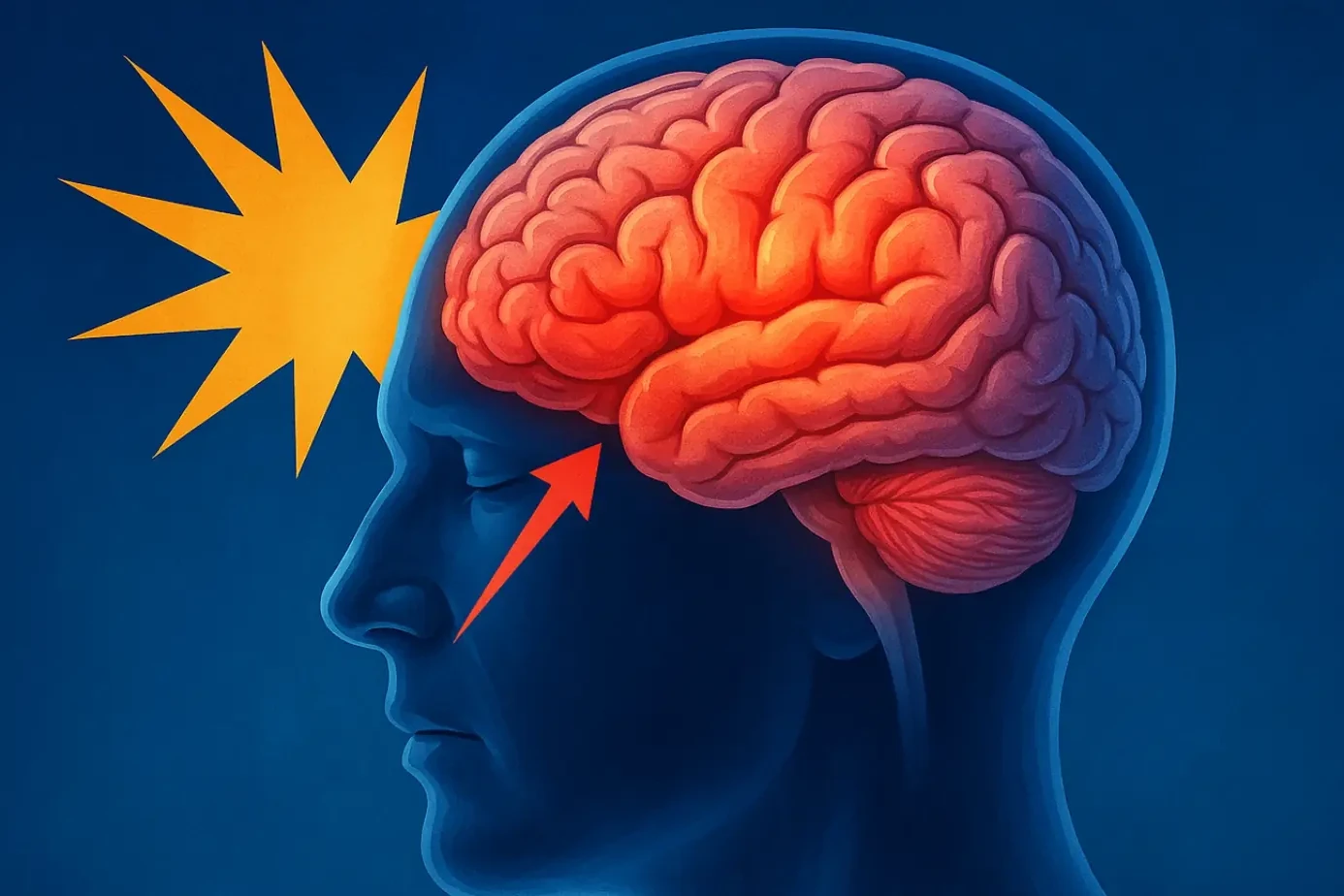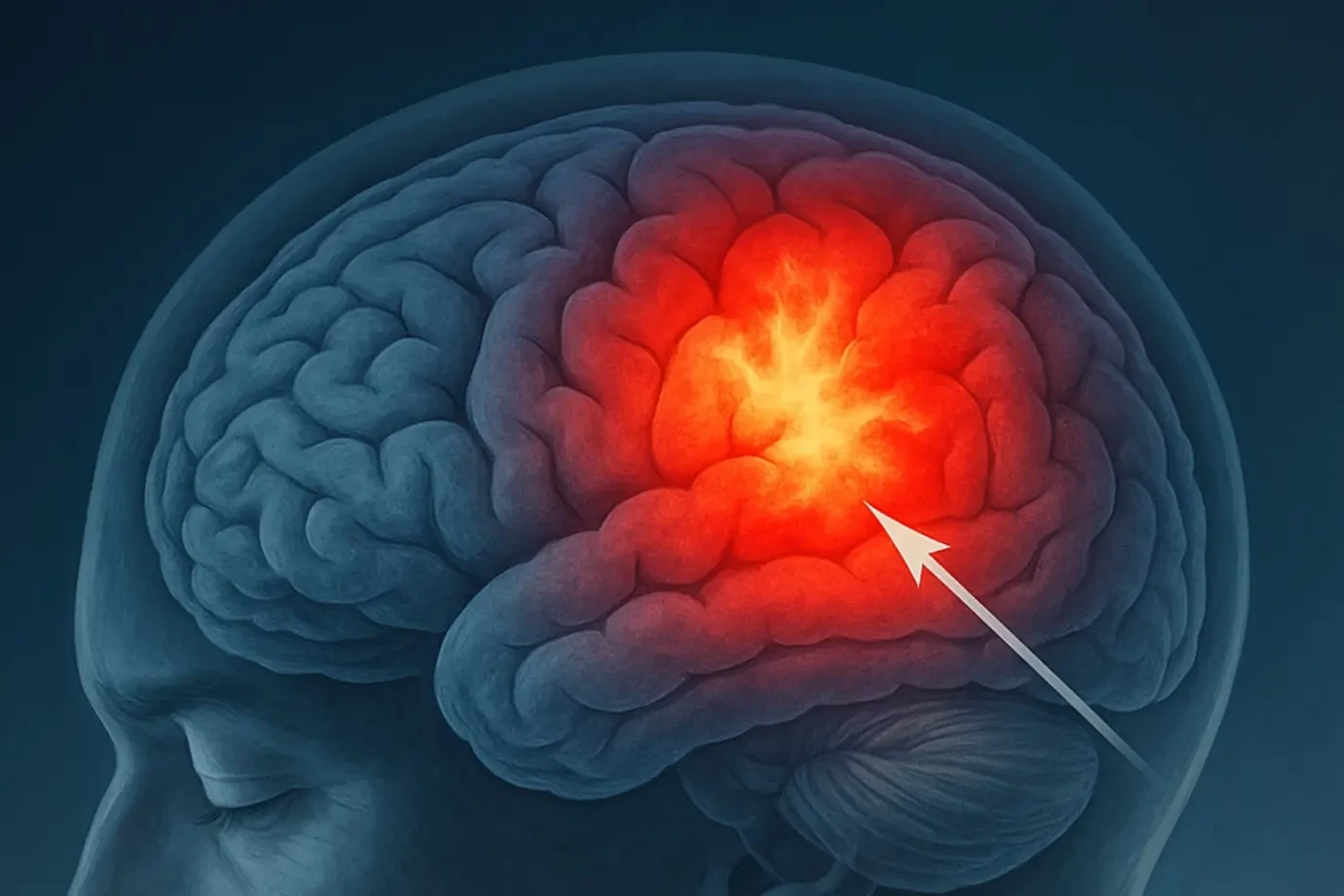If you or someone close to you has ADHD, you might know how hard sleep issues can be. ADHD is a chronic condition that affects the brain’s development. It often brings sleep problems like insomnia, trouble with sleep schedules, and breathing issues during sleep.
About 25% to 50% of people with ADHD struggle with sleep. These sleep issues can make ADHD symptoms worse. This includes forgetfulness, trouble focusing, and a lower quality of life.
It’s important to understand how ADHD and sleep disorders are connected. Knowing the causes and solutions can help you sleep better and feel better overall. We’ll look at how ADHD and insomnia are linked and offer ways to sleep better.
Table of Contents
ToggleRelationship Between ADHD and Sleep Issues
ADHD is a neurodevelopmental condition that affects sleep patterns. People with ADHD often have trouble sleeping. They may sleep less, find it hard to fall asleep, and are more likely to have sleep disorders.
How ADHD Affects Sleep Patterns
ADHD can mess with how the brain controls sleep. This leads to problems with the sleep-wake cycle. Those with ADHD might stay up late and struggle to fall asleep. Their brains have trouble managing sleep and wakefulness.
Increased Risk of Sleep Disorders in ADHD
- About 25–50% of people with ADHD also have sleep disorders like insomnia, narcolepsy, and restless legs syndrome.
- Insomnia affects 43–80% of adults with ADHD. It includes trouble falling asleep, waking up often at night, and going to bed late.
- 19% of people with obstructive sleep apnea, a condition where breathing stops and starts in sleep, also have ADHD.
- Studies show that adults with narcolepsy might be twice as likely to have ADHD from childhood.
- Up to 44% of people with ADHD may have restless legs syndrome (RLS). This causes discomfort and a need to move legs, making it hard to sleep.
The link between ADHD and sleep problems is complex. Many factors increase the risk of sleep disorders in those with ADHD. It’s important to understand this connection to help manage and treat sleep issues.
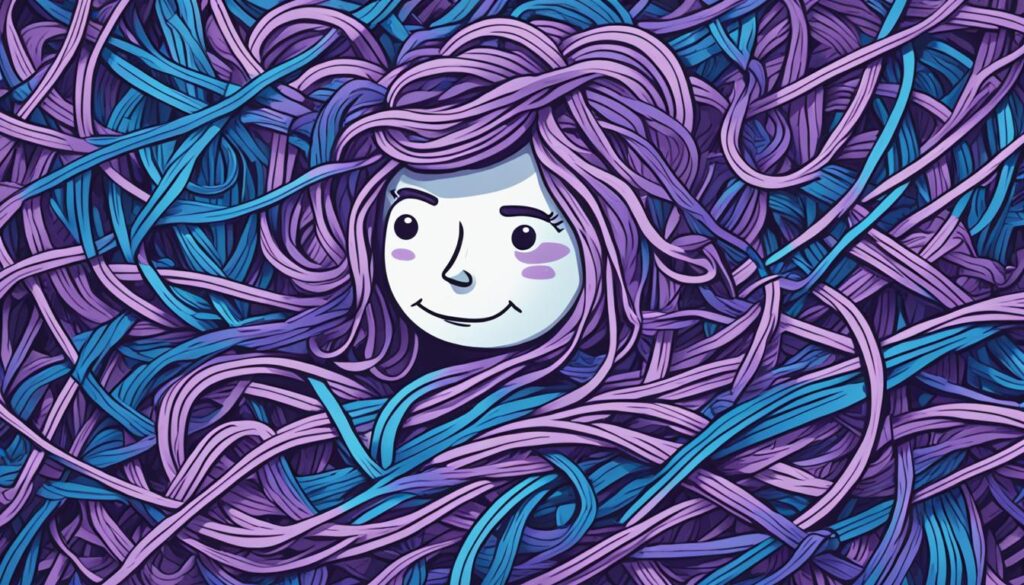
Common Sleep Disorders in ADHD
If you have ADHD, getting a good night’s sleep can be tough. ADHD symptoms like racing thoughts and trouble settling down can feel like sleep deprivation. People with ADHD often face a higher risk of sleep disorders, including insomnia, circadian rhythm sleep disorders, and sleep-disordered breathing like sleep apnea.
Insomnia and ADHD
Many with ADHD struggle with insomnia. They find it hard to fall asleep because their minds won’t stop racing. This leads to a cycle of not sleeping well and ADHD symptoms getting worse during the day.
Circadian Rhythm Sleep Disorders
ADHD often brings circadian rhythm sleep disorders, like delayed sleep-wake phase disorder. This makes falling asleep hard and causes too much sleepiness during the day. The body’s clock is out of sync with normal sleep patterns.
Sleep-Disordered Breathing and Sleep Apnea
About one-third of ADHD patients deal with sleep-disordered breathing, including sleep apnea. These problems disrupt sleep and make ADHD symptoms worse. It’s hard to manage ADHD when sleep is poor.
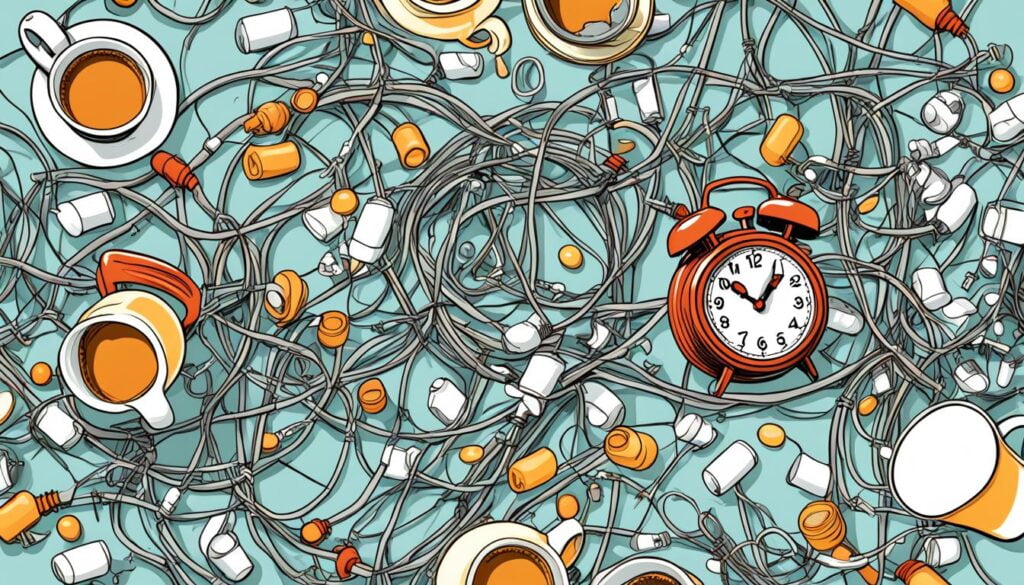
It’s key to tackle these sleep issues in ADHD to better manage the condition and improve well-being. By understanding how ADHD and sleep are linked, people can work with doctors to find a treatment plan. This plan will cover ADHD and sleep problems.
ADHD insomnia: A Vicious Cycle
ADHD and sleep issues often go hand in hand. People with ADHD might find it hard to sleep well, leading to forgetfulness and trouble focusing. This can make ADHD symptoms worse, causing a tough cycle.
Symptoms of Sleep Deprivation Mimic ADHD
Not getting enough sleep can really hurt someone’s daily life. It can lead to health problems and make it hard to do well at work or school. It can also affect personal relationships.
Impact on Daily Functioning and Quality of Life
- About 70 million Americans struggle with insomnia each year. Up to 50% of people will get insomnia at some point.
- Insomnia is a common sleep issue and also a top mental health problem.
- People with ADHD are more likely to have sleep problems.
- Insomnia and other sleep issues can really affect how someone works and relates to others.
Getting the right support is key for people with ADHD to better their sleep. This can help break the cycle of adhd insomnia cycle, adhd sleep deprivation, and adhd daily functioning issues. Dealing with the root causes can improve ADHD management and overall health.
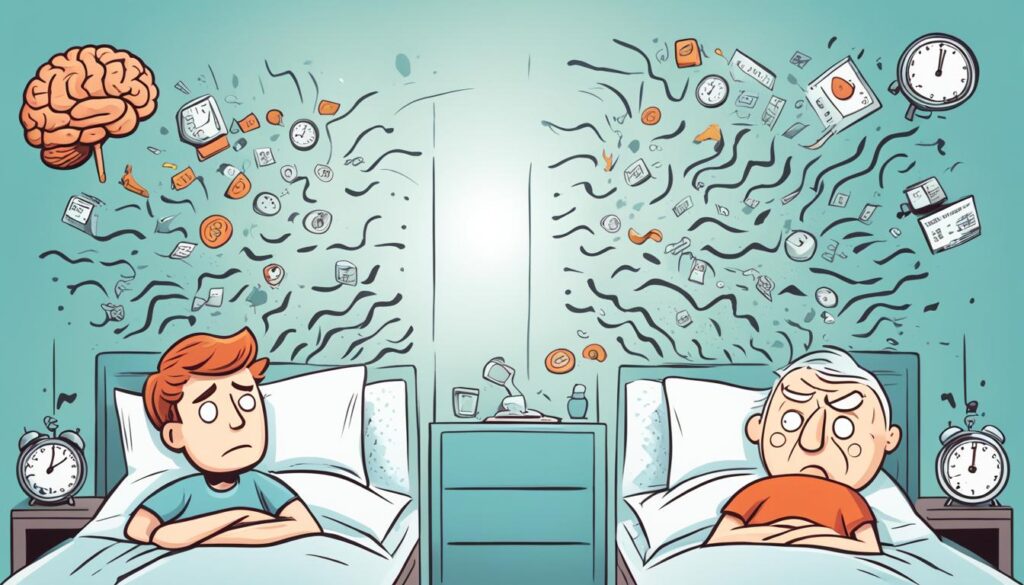
Potential Causes of ADHD Insomnia
If you have ADHD, getting a good night’s sleep might be hard. Researchers think ADHD can mess with how the brain handles being awake and asleep. They also believe a delayed sleep cycle, with melatonin coming on later, adds to sleep issues for people with ADHD.
Brain Arousal and Regulation
ADHD affects how the brain controls being awake and alert. This can make it hard to fall and stay asleep. The brain might not easily switch to a sleepy state. Also, how the brain works can affect sleep in people with ADHD.
Delayed Circadian Rhythms and Melatonin Release
People with ADHD might have a delayed sleep cycle. This means melatonin, the sleep hormone, starts later. This timing mismatch with the outside world can make falling asleep hard, leading to insomnia and other sleep problems.
Even though research hasn’t found clear sleep issues in ADHD, it shows other factors might also be at play. This makes understanding ADHD and sleep complex.
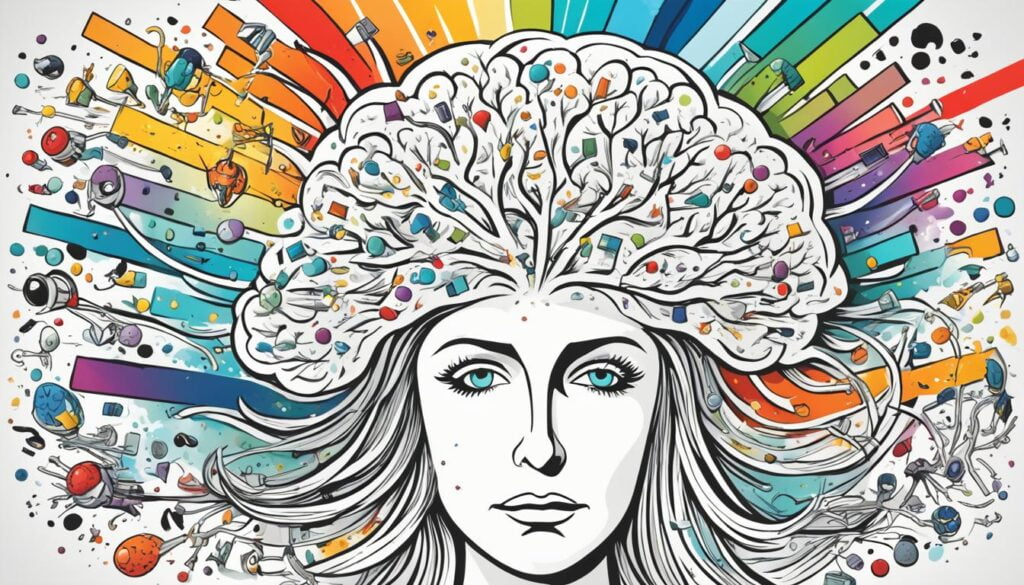
Role of Stimulant Medications
Stimulant medications are often used to treat Attention-Deficit/Hyperactivity Disorder (ADHD). They can affect sleep in complex ways. Some people find them helpful for sleeping better. But, many others struggle with sleep issues because of these medications.
A study by Sallee et al. in 2009 showed that guanfacine extended release helped kids and teens with ADHD sleep better. Kollins et al. in 2011 found that adding clonidine extended-release tablets to ADHD treatments improved sleep issues.
But, how stimulants affect sleep in ADHD can vary a lot from person to person. For example, a study by Gruber et al. in 2011 looked at how sleep problems affect ADHD symptoms in kids.
Researchers have also looked into using melatonin, a natural sleep hormone, to help with ADHD sleep issues. Heijden et al. in 2007 studied how melatonin helped with sleep, behavior, and thinking in ADHD and chronic sleep problems.

In summary, stimulant medications for ADHD have both good and bad effects on sleep. It’s important to understand these effects and consider other treatments like melatonin. This can help doctors and people with ADHD manage sleep issues and feel better overall.
Coexisting Conditions and Sleep Hygiene
ADHD brings more than just core symptoms. Many people with ADHD also face coexisting conditions like anxiety, depression, or substance abuse. These conditions can make sleeping hard. Poor sleep habits can also make it harder for those with ADHD to sleep well.
It’s key for people with ADHD to get good sleep habits. This means going to bed at the same time every night, making your bedroom sleep-friendly, and avoiding stimulants before bed. By tackling these issues and using good sleep habits, people with ADHD can sleep better and feel better during the day.
- Maintain a consistent bedtime routine to signal the body that it’s time to wind down.
- Ensure your sleep environment is cool, dark, and quiet to promote better sleep.
- Avoid consuming caffeine, nicotine, or other stimulants close to bedtime, as they can interfere with sleep.
- Engage in relaxation techniques, such as deep breathing or meditation, to help you unwind before bed.

By dealing with coexisting conditions and using good sleep habits, people with ADHD can get better sleep and feel better overall. This can help manage symptoms and improve life quality for those with ADHD.
Diagnosing Sleep Disorders in ADHD
For people with Attention-Deficit/Hyperactivity Disorder (ADHD), getting help for sleep issues is key. Sleep problems can really affect how well they function daily and their overall health. Experts suggest checking patients with ADHD for sleep disorders before giving them medicine. This is because ADHD symptoms can be like those of sleep disorders, and sleep issues might not be noticed otherwise.
Importance of Screening for Sleep Issues
It’s vital to thoroughly check sleep patterns and do sleep studies to make sure ADHD patients get the right treatment. Almost three out of four kids and teens with ADHD have a sleep problem. And, up to four out of five adults with ADHD also deal with sleep issues.
Knowing how ADHD and neurodevelopmental conditions are linked is key. People with ADHD might feel more awake at night than in the morning. Kids with ADHD often have sleep issues like sleep apnea and snoring.
It’s crucial to screen for adhd sleep disorder diagnosis and adhd sleep screening. This helps find and fix any sleep problems. It makes sure ADHD treatment covers all aspects, improving life quality for those with ADHD.
Treatment Options for ADHD Insomnia
Treating insomnia in people with ADHD means looking at different ways to help. Changing the timing and amount of ADHD medication can help. Also, using ADHD behavioral therapy and good sleep habits can make a big difference.
Medication Adjustments
Some children with ADHD may experience sleep difficulties as a side effect of their medication. In such cases, doctors often recommend adjusting the timing of the dose to make it easier to fall asleep. For tailored advice, it’s best to consult the best ADHD doctor for kids.
Behavioral Therapy and Sleep Hygiene
Therapies like cognitive-behavioral therapy for insomnia (CBT-I) can really help. They focus on changing thoughts and habits to improve sleep. Good sleep habits, like making a quiet sleep space and avoiding screens before bed, also help a lot.
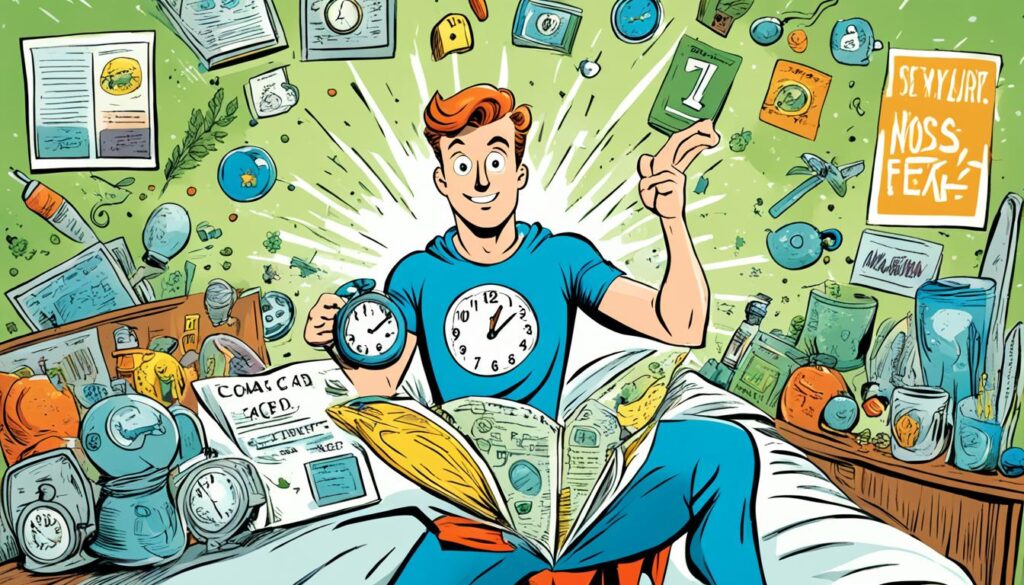
By looking at both how medications work and changing sleep habits, doctors can help people with ADHD sleep better. This can make them feel much better overall.
Importance of Healthy Sleep for ADHD Management
Getting healthy sleep is key for people with ADHD. It helps them function better, think clearer, and live happier. Not getting enough or good sleep can make ADHD symptoms worse. This includes trouble focusing, remembering things, and controlling impulses.
Studies show that about 80 percent of adults with ADHD also have sleep problems, like insomnia. Those with ADHD are more likely to have sleep issues and use sleep medicine. They are eight times more likely to have a sleep disorder and 14 times more likely to use sleep drugs than others.
Healthcare experts know how vital adhd healthy sleep is. They suggest ways to improve sleep, like changing meds, therapy, and good sleep habits. By tackling the neurodevelopmental conditions and cognitive impairments linked to ADHD, people can manage their symptoms better and feel better overall.
The link between ADHD and sleep is complex. Things like brain activity, delayed sleep cycles, and ADHD drug side effects can make sleeping hard. By understanding these issues and getting the right help, people with ADHD can work on better sleep and well-being.
Tips for Better Sleep with ADHD
Getting good sleep with ADHD can be tough. But, there are ways to make it better. By setting a bedtime routine, making your bedroom sleep-friendly, and using relaxation techniques, you can sleep better and feel better.
Establishing a Routine
Creating a bedtime routine is key for better sleep with ADHD. It helps your body clock get in sync and tells your brain it’s time to sleep. Try to go to bed and wake up at the same time every day, even on weekends. Before bed, do calming things like reading, stretching, or a warm bath.
Creating a Sleep-Friendly Environment
Your bedroom’s setup is important for sleep. Keep it cool, dark, and quiet. Use blackout curtains or an eye mask for light, and earplugs or a white noise machine for sounds. Make sure your mattress and pillows are comfy and supportive for a good night’s sleep.
Relaxation Techniques
Adding relaxation practices to your bedtime routine can help you sleep better. Try deep breathing, progressive muscle relaxation, or mindfulness meditation to calm your mind and body. These techniques are great for people with ADHD because they help with racing thoughts and hyperactivity.
Remember, finding the right sleep and relaxation tips takes time and patience. Keep trying different things until you find what works for you. With some effort, you can find the sleep tips that give you the rest you need.
Conclusion
ADHD and sleep problems are closely connected. People with ADHD often face a higher chance of sleep disorders like insomnia, circadian rhythm disturbances, and sleep disorders. It’s key to tackle these sleep issues to boost overall health, brain function, and daily life.
Combining medication changes, behavioral therapy, and good sleep habits can help those with ADHD get the sleep they need. This approach aids in managing ADHD and living a better life. By grasping the link between ADHD and sleep problems, you can start making changes to better your sleep and life quality.
With the right methods and support, you can beat ADHD-related sleep problems. This leads to a healthy sleep pattern that enhances your health and happiness.
FAQ
What is the relationship between ADHD and sleep issues?
What are the most common sleep disorders experienced by individuals with ADHD?
How do the symptoms of sleep deprivation and ADHD interact?
What are the potential causes of ADHD-related sleep problems?
How do stimulant medications impact sleep in individuals with ADHD?
What is the importance of screening for sleep disorders in individuals with ADHD?
What are the treatment options for ADHD-related insomnia?
Why is healthy sleep important for individuals with ADHD?
What strategies can individuals with ADHD use to improve their sleep quality?
People with ADHD can try different things to sleep better. This includes a regular bedtime routine, a quiet bedroom, and relaxation techniques like meditation. These can help fix the sleep cycle and lead to better sleep.
Source Links
About The Author

Dr Chandril Chugh
This article is medically reviewed by Dr Chandril Chugh, he is committed & compassionate Board-Certified Neurologist, providing expert insights and reliable health information. with a Holistic Approach to Healing.
→ Book a consultation to discover which remedies suit your needs best.
About Author | Instagram | YouTube | Linkedin



